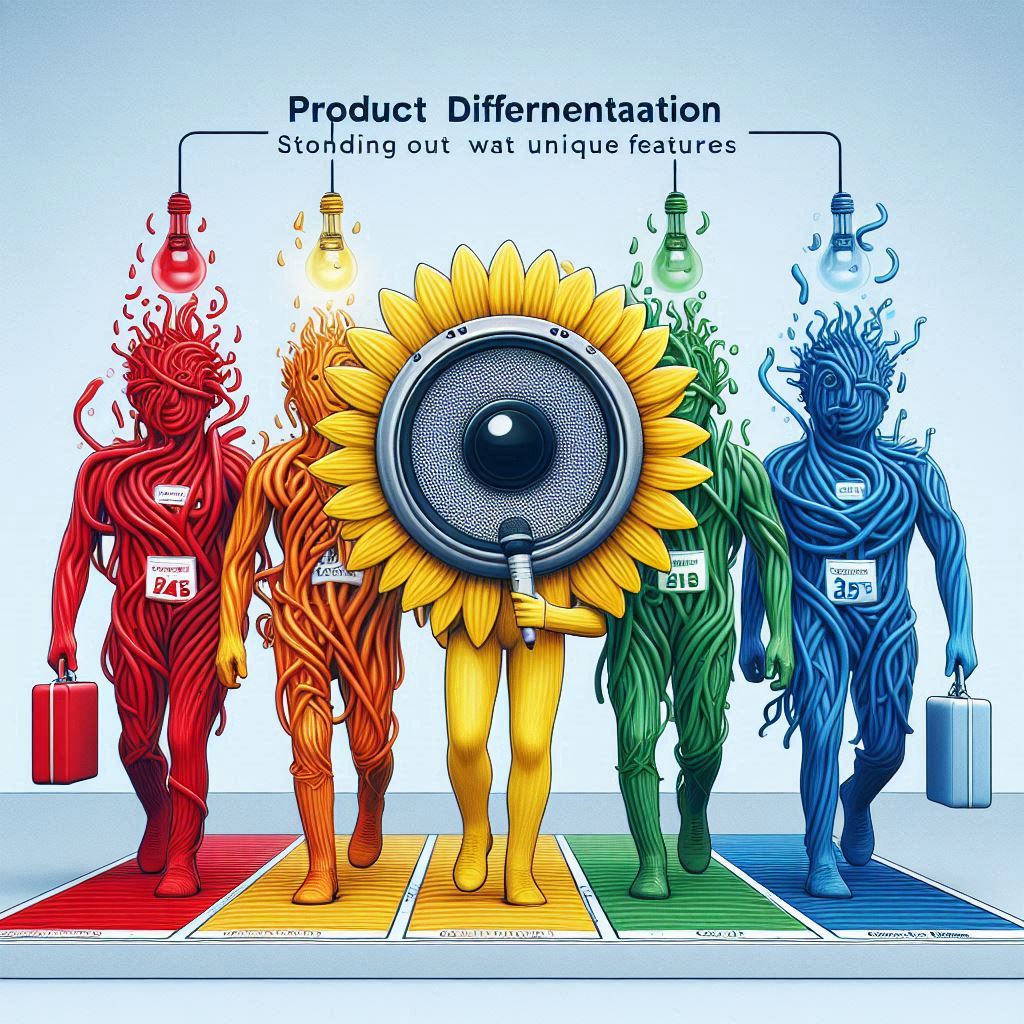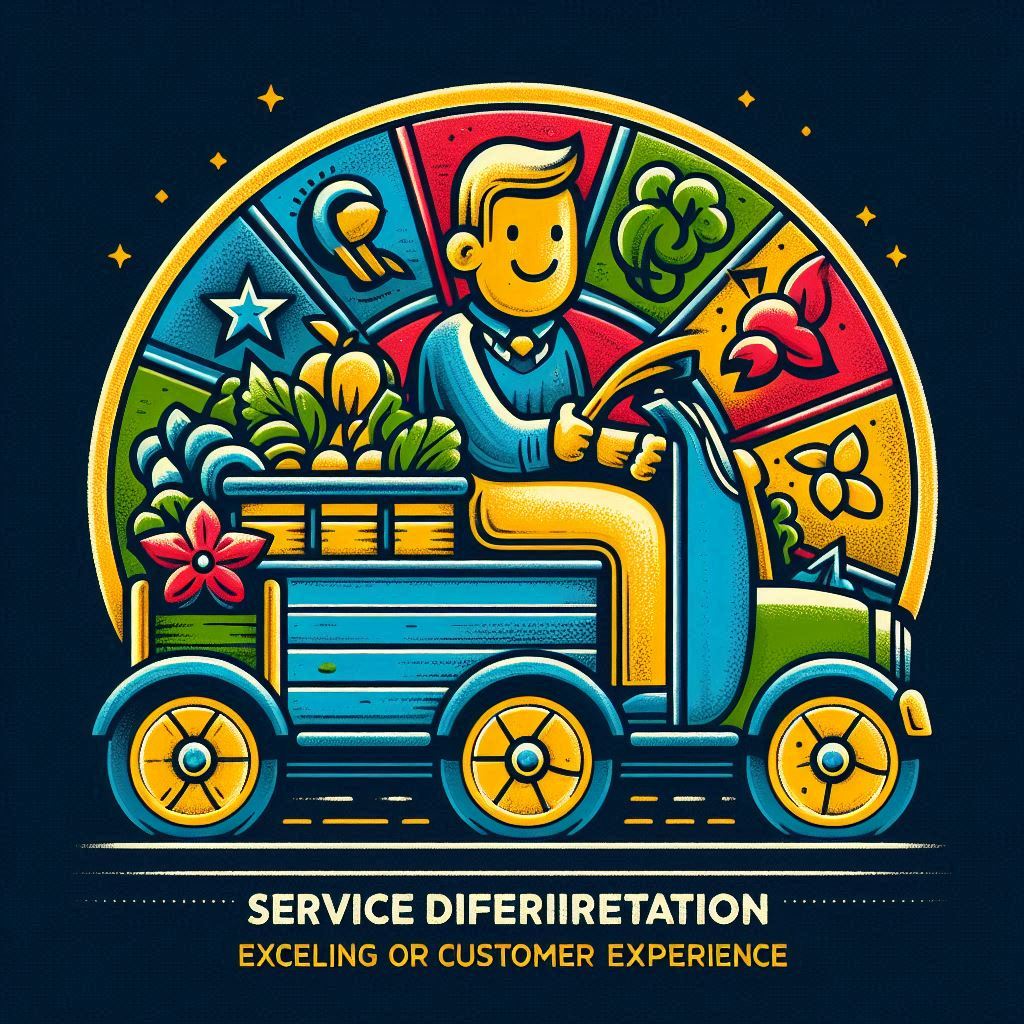Understanding Differentiation Strategy with Real Examples
Businesses utilize a differentiation strategy to exhibit their unique attributes and create a niche in competitive markets. Companies can engage customers and foster loyalty by offering innovative products, exceptional services, or unique branding.
This article explores the real-world application of differentiation strategies and their impact on market presence through examples such as technology companies that blend functionality with sophisticated designs, jewelers who offer bespoke pieces presented in iconic packaging, and airlines that provide a premium travel experience regardless of seating class.
Exploring the Concept of Differentiation Strategy
Key Elements That Define a Differentiation Strategy
Differentiation strategy is crucial for businesses to distinguish themselves in a competitive landscape. By cultivating unique characteristics in products or services, companies can resonate with the consumer’s needs and interests. A sophisticated and straightforward tech device, exclusive jewelry, or airlines offering a superior travel experience are classic instances where distinctive offerings become synonymous with a brand.
This approach typically warrants a premium price as it caters to particular customer preferences and increases customer loyalty.
Various Forms of Differentiation Strategies
Product Differentiation: Standing Out with Unique Features

To capture consumer interests, companies concentrate on creating unique products. Rigorous research and development propel the identification and crafting of features that meet and even create new consumer desires. An example includes a tech company prioritizing aesthetics and functionality in its gadgets, enhancing customer appeal. Similarly, a jeweler can create a niche by offering intricately designed pieces and a distinctive unpacking experience.
Airlines strive for distinction by offering attentive service and employing advanced technology to enrich the travel experience, reinforcing their identity and heightening customer allure.
Service Differentiation: Excelling in Customer Experience

Service differentiation focuses on delivering an unparalleled customer experience. By scrutinizing customer needs, companies can innovate and raise the service bar. A coffee establishment might provide a unique environment that transforms a simple coffee break into an engaging moment. Jewelers accentuating finesse in their craftsmanship and presentation capture clients seeking luxury.
Likewise, airlines emphasizing considerate service and modern amenities, even in standard fare categories, carve themselves a niche by going beyond the conventional travel proposition and creating memorable journeys.
Brand Differentiation: Crafting a Memorable Identity

Brand differentiation is about fostering a distinct presence in the marketplace. Continuous product and service innovation, aligned with understanding the nuances of consumer desires, enables businesses to position themselves uniquely in the eyes of the customer. Innovative design, exclusive packing in luxury goods, and a reputation for excellent airline service exemplify how businesses use brand differentiation to anchor a robust and memorable brand identity.
Assessing the Gains: Advantages of Successful Differentiation
Providing unique product attributes or experiences sets enterprises apart and allows for premium pricing. A coffee shop’s delectable blends and inviting ambiance, a tech company’s blend of practical functionality with sophisticated design, and an airline’s commitment to improving the travel experience through attentive service exemplify how differentiation can foster brand loyalty and support more sustainable pricing strategies.
Research and innovation are central to catering to customer preferences, enabling businesses to establish a successful differentiation strategy resulting in a distinct brand identity and enhanced profit margins.
Creating a Differentiation Strategy for Your Business
Steps to Craft a Unique Value Proposition

A compelling value proposition is built on an intimate understanding of customer needs. Begin with exhaustive market research to identify customer demands that your offering can meet in a novel way. If a tech gadget is developed with a minimalist yet user-friendly interface, it will likely attract consumers who prioritize ease of use. Your pricing strategy should mirror the additional worth provided by these unique features.
Technological advances or superior services enhancing user experience further demarcate your product from competitors. Articulating this singular value clearly in your proposition is key to successful differentiation.
Monitoring the Effectiveness of Differentiators

Assessing the impact of differentiators on market position requires a structured approach. To determine the success of differentiators, employ strategies like obtaining customer feedback, analyzing sales data, reviewing market share changes, and measuring brand loyalty. Consistent review of these metrics enables continuous refinement of strategies to maintain relevance and fulfill the initial differentiation objectives.
Frequently Asked Questions about Differentiation Strategies
Clarifying Common Misconceptions
The misconception that differentiation is only for large enterprises with sizeable budgets is widespread. In reality, differentiation can be achieved by attentively catering to customer needs in distinctive ways. A lawn care service might use environmentally friendly products to draw eco-conscious clients. A local bakery could leverage fresh, local ingredients to differentiate itself.
These examples demonstrate that differentiation rests on recognizing and acting on unique opportunities that align with consumer interests, a feasible approach for corporations and small businesses.

Vizologi is a revolutionary AI-generated business strategy tool that offers its users access to advanced features to create and refine start-up ideas quickly.
It generates limitless business ideas, gains insights on markets and competitors, and automates business plan creation.


